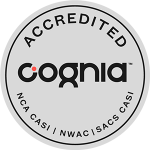Online learning can be a rewarding experience, allowing students to expand their horizons from the comfort of their home. However, it’s not without its challenges. It’s much easier to coast below the radar and avoid participation when learning through the computer. Additionally, there’s no one looking over your shoulder to make sure you’re doing what you need to do. To be successful, you need to make a commitment to yourself that you’ll take online school just as seriously as you would in-person learning.
But it’s not as hard as it sounds. Below, you’ll find tips to help focus your online studies so that you can maintain concentration, retain information, and score well on your exams.
Schedule Frequent, Shorter Study Periods
Our minds can only concentrate for so long. If you try to cram all of your studies into one long block, your attention will begin to drop, and your long-term retention will suffer. Instead, schedule shorter, more frequent study blocks. Not only will your concentration remain high throughout, but you’ll end up revisiting the same information multiple times, effectively moving it from short-term to long-term memory.
Remember that last-minute cram sessions are never effective. You might retain the information long enough to pass a test, but you’ll forget the bulk of it shortly after. If you have to engage in longer study sessions, make sure to take frequent breaks, giving your brain time to absorb what you learned.
Take Notes During Class
You may have the option to revisit your classes anytime you like, but you shouldn’t use that as a substitute for note-taking. Actively writing or typing information helps your brain to remember what you learn. In fact, neuroscientists have found that handwritten notes are one of the most effective means of learning and understanding the material you’ve covered or read in class. Mentally sorting through the lesson in real-time and choosing what to write down engages critical learning processes that are less active when you’re passively listening or reading. Taking notes also keeps you alert and engaged, which is essential for online classes since you won’t have an instructor to notice if you’re less motivated or feeling distracted.
After the lesson, your notes function as a condensed study guide, highlighting all of the critical information covered in class. You can review your notes considerably faster than re-reading an entire lesson or re-watching a video.

Don’t Focus on One Topic for Too Long
Studies are most effective when we allow our brains to work in the background on the information that it’s taking in. To avoid burning out on a particular subject, switch topics between study sessions.
If you’re juggling several subjects, it’s wise to create a study schedule. Block out short sessions throughout the day and assign each a subject. You can set a timer or alarm that will alert you a few minutes before you are supposed to make the switch. That way, you can let yourself get lost in your learning without having to constantly check the clock. When you are switching between subject areas or lessons, make sure to revisit each topic several times, but space them out with other subjects in between. This will help keep your brain awake and ready to take in new information.
Quiz Yourself to Ensure Success
At the end of each study session, use flashcards or a similar self-quizzing tool to demonstrate your grasp of the material. Create your flashcards by hand — there are online flashcard apps available, but the process of writing them slows you down and helps with recall.
After reviewing the flashcards for your current subject, you might consider a quick review of an earlier topic. This helps test your long-term retention better than quizzing yourself immediately after learning the material. Looping through older lessons to newer ones will keep the older information at the center of your learning and move it from short-term to long-term memory. If you use your notes to study, adding questions in the margins as a review of your notes and then later answering them also helps keep the information fresh. Another way to quiz yourself is to write a short summary of what you learned before moving to the next subject area. This gives your brain closure to one activity before moving forward with another.
Online homeschooling can be just as effective as in-person learning. Just follow the tips above and commit yourself to earnest study, and you should do well!
Northgate Academy classes are self-paced, allowing plenty of time to learn and master the material. Enroll today or give us a call to learn more!




